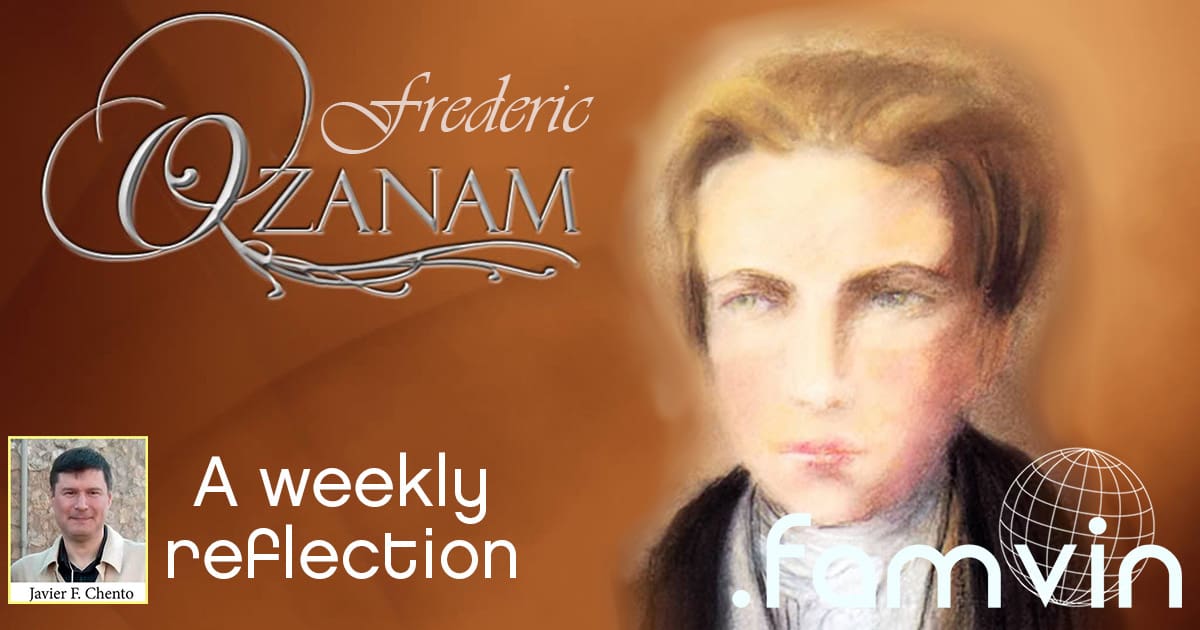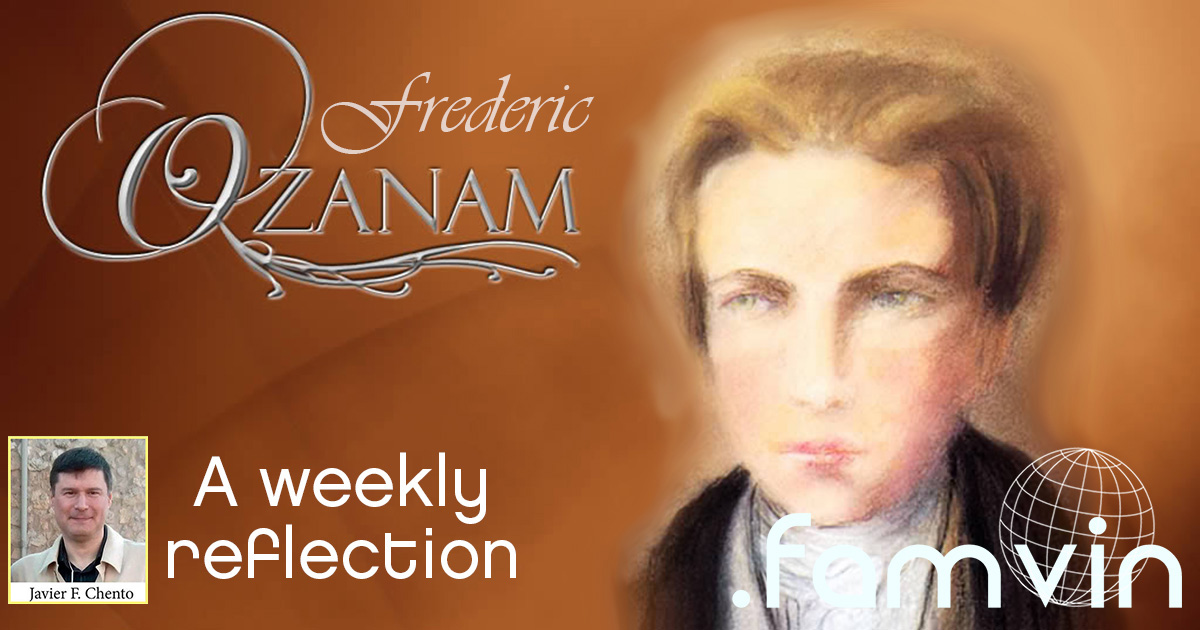Priests Committed to the Poor and the Needy • A Weekly Reflection with Ozanam
Priests, do not be offended at the freedom of speech which a layman uses in appealing to your zeal. […] Mistrust yourselves, mistrust the habits and customs of a more peaceful period, and have less doubt of the power of your ministry and its popularity. It is true, and we recognize it proudly, that you love the poor of your parishes, that you welcome with charity the beggar who knocks at your door, and that you never keep him waiting when he calls you to his bedside.
But the time is come for you to occupy yourselves with those other poor who do not beg, who live by their labor, and to whom the right of labor and the right of assistance will never be secured in such a manner as to guarantee them from the want of help, of advice, of consolation.
The time is come when you must go and seek those who do not send for you, who, hid away in the most disreputable neighborhoods, have perhaps never known the Church or the priest, or even the sweet name of Christ.
Do not ask how they will receive you, or rather ask those who have visited them, who have ventured to speak to them of God, and who have not found them more insensible to a kind word and a kind action than the rest of mankind.

Frederic Ozanam, «Aux gens de bien», article appeared in the newspaper l’Ere Nouvelle in September 15, 1848.
Reflection:
- In this article published in the newspaper L’Ere Nouvelle, Frederic encouraged diverse social groups to courageously take on their responsibilities in the society in which they had to live, complex and convulsive, and with many questions that demanded solutions, as was the case of the social question, of which we have already spoken on other occasions (e.g., here and here).
- In this paragraph he addresses to the priests. Already in an earlier letter he encouraged his brother Alphonse, also a priest, to leave the confined area of his parish to meet the poor and the workers, “an immense population that they do not know.”
- The workers, workers of the first industries, were truly marginalized in Frederic’s time: poorly paid, living in subhuman conditions Few cared about their interests and rights. Ozanam demands that the priests also take care of them, who, although having “the right of labor and the right of assistance,” are in need of “help, of advice, of consolation.” It is a real call to go out to the peripheries, to the “bad neighborhoods,” to meet all those who may never have known “the Church […] or even the sweet name of Christ.”
- Then, as now, a call of this type can provoke insecurity, forcing us to leave our comfort zones and past experiences, and face new and unknown situations, which need answers that will not be found in previous experiences. Frederic asks the priests for two things that we can also ask for today: (1) “mistrust the habits and customs of a more peaceful period”; (2) “have less doubt of the power of your ministry.” In a secularized society, such as today, the ordained can doubt even the usefulness of his/her ministry or, not doubting it, withdraw into the small group of those who are close to the parish, and disregard the rest. But we no longer live the times when being a Christian was the habit, less even a social virtuous status. There are many, today, as in the time of Frederic, who do not know Jesus Christ; much more that, in their situation of helplessness, no one pleads for them. Are we, Christians, and especially the priests, also at their service?
- Frederic’s last words are telling the priests — and telling us also — not to be afraid, that they are not to wonder if they will receive them rightly or wrongly, or what will other people think of them when going to bad neighborhoods. Because the poor, the needy, are also sensitive to “a kind word and a kind action.” This is something so present in the Vincentian tradition: to proclaim the living God with the strength of our arms and the sweat of our brows, not only with the pious word.
Questions for dialogue:
- What similarities do we find between the situation of the workers drawn by Ozanam and the present one?
- How are Vincentians acting to combat these poverties?
- Are we “going out to the peripheries,” as Frederic and Pope Francis ask us, to meet the needy?
- If I am a Vincentian layperson: how can I help the consecrated members of the Vincentian Family to live this commitment?
- If I am a Vincentian priest, am I living these attitudes and commitments in my personal existence?
Javier F. Chento
![]() @javierchento
@javierchento
![]() JavierChento
JavierChento










0 Comments